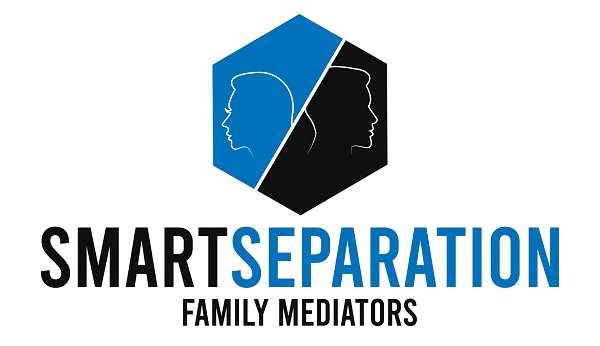Why Choose Family Mediation in Toronto, Ontario?
Family mediation is a preferred alternative to litigation for many separating couples in Toronto. This voluntary and cooperative process allows both parties to work toward fair and practical agreements with the guidance of a neutral professional. Choosing mediation over a courtroom battle offers several benefits:
- Faster resolution and lower costs compared to court
Mediation typically resolves issues in fewer sessions, helping you avoid long wait times and expensive court proceedings. - Confidential and cooperative process
Unlike public court hearings, mediation is private and focuses on respectful communication, helping preserve relationships—especially when children are involved. - Mediation is encouraged by Ontario family courts
Courts often urge couples to try mediation before proceeding to litigation, particularly in family law matters like parenting and support. - Ideal for parenting plans, division of property, and spousal support
Whether you’re dealing with child custody, asset division, or financial arrangements, a skilled Toronto family mediator can guide you toward a mutually acceptable solution.
Required Credentials for a Family Mediator in Ontario
In Ontario, not all mediators are created equal. To ensure you’re working with a qualified and trustworthy professional, it’s essential to understand the credentials that a competent family mediator should possess. Here’s what to look for:
- Certification by the Ontario Association for Family Mediation (OAFM) or ADR Institute of Ontario (ADRIO)
These professional bodies establish high standards for training, ethics, and practice. Certified mediators must meet rigorous requirements and adhere to a strict code of conduct. - Background in family law, social work, or psychology
A mediator with formal education or professional experience in fields like family law, mental health, or conflict resolution is better equipped to guide complex emotional and legal discussions. - Completion of accredited family mediation training
In Ontario, certified family mediators must complete specialized training programs that include theory, practical skills, and supervised mediation practice. - Continuing professional development (CPD) hours
Ongoing learning is required to maintain accreditation. A good family mediator stays current with changes in Ontario family law and mediation best practices through annual CPD. - Insurance coverage and ethical standards adherence
Professional liability insurance is a sign of accountability and professionalism.
Choosing a family mediator with the right credentials in Toronto is not just a legal formality—it’s an investment in a smoother, more respectful resolution process.
Key Questions to Ask a Toronto Family Mediator before Hiring
The right questions can help you assess if the mediator is a good fit for your situation. Before making your decision, be sure to have a consultation and ask the following:
- How long have you been practising Toronto family mediation?
Experience matters. A mediator with a solid track record in Toronto will be more familiar with local legal norms, court expectations, and cultural dynamics relevant to your case. - Are you accredited by OAFM or another regulatory body?
Accreditation from a recognized organization like the Ontario Association for Family Mediation (OAFM) or ADR Institute of Ontario (ADRIO) ensures your mediator meets professional standards and follows ethical guidelines. - What is your approach to high-conflict cases?
If your separation involves significant tension or disagreement, it’s important to know how the mediator manages power imbalances, emotional triggers, and communication breakdowns. - Have you handled cases involving children, support, or property division?
A well-rounded mediator should have experience across all major family law areas—especially if your case involves parenting plans, spousal support, or asset division. - What are your fees and how are they structured (hourly, flat fee, retainer)?
Clarity around fees will help you plan your budget. Some Toronto mediators offer flat-fee packages for standard agreements, while others charge by the hour. - Will you draft a Memorandum of Understanding (MOU) or separation agreement?
Ask whether the mediator will provide a written summary of the outcomes, and whether it can be converted into a legally binding separation agreement. This step is crucial if you plan to finalize your arrangements without going to court.
Red Flags to Watch Out For
Not all mediators offer the same level of professionalism or neutrality. Be cautious of the following warning signs:
- Lack of accreditation or unclear qualifications
A mediator who is not accredited by recognized Ontario organizations such as OAFM or ADRIO may not have the proper training or accountability standards. Always verify credentials before proceeding. - Promising specific legal outcomes
A family mediator is a neutral facilitator—not a lawyer advocating for one side. Be wary of anyone who guarantees outcomes like custody arrangements or financial settlements. These should be reached mutually, not imposed. - Pushing for agreements without understanding both sides
Mediation should be a balanced process. If a mediator seems biased, rushes discussions, or ignores your concerns, it may indicate a lack of neutrality or skill in handling complex dynamics. - Poor communication or lack of transparency on fees
Clear and timely communication is essential. If a mediator is vague about their process, unavailable for questions, or unclear about pricing, it may signal disorganization or hidden costs down the line.
Choosing a Toronto family mediator should involve careful consideration. If you notice any of these red flags, it’s best to consult another professional before proceeding. Your peace of mind—and the fairness of your agreement—depends on it.
Mediation vs. Litigation: Why Mediation Works Better for Many Toronto Families
When separating or divorcing in Toronto, families often face a choice between mediation and litigation. While court may be necessary in high-conflict or emergency situations, mediation is frequently the better option for most families. Here’s why:
- Less adversarial process
Unlike litigation, which positions parties against each other, mediation fosters cooperation. A neutral mediator helps both sides communicate respectfully and work toward mutual solutions—reducing emotional stress and hostility. - More control over outcome
In mediation, you and your partner make the final decisions—not a judge. This allows for more personalized agreements tailored to your family’s unique needs, including parenting schedules, support payments, and property division. - Often faster than court
Court cases can take months—or even years—due to delays, scheduling issues, and procedural complexity. Mediation sessions can often be completed in a matter of weeks, allowing you to move forward more quickly. - More suitable for preserving co-parenting relationships
For families with children, mediation encourages a cooperative spirit that supports long-term co-parenting. By reducing conflict, it sets a more positive tone for future communication and shared responsibilities.
How to Find a Qualified Toronto Family Mediator
Finding the right Toronto Family Mediator can make a significant difference in how smoothly and effectively your separation is resolved. Here are practical tips for locating a qualified and trustworthy mediator:
- Ontario family mediation directories (OAFM, ADRIO)
Start your search with trusted professional directories such as the Ontario Association for Family Mediation (OAFM) or the ADR Institute of Ontario (ADRIO). - Referrals from family lawyers or therapists
Many family law professionals and mental health practitioners work closely with mediators and can recommend someone reputable. If you’re already consulting a lawyer or therapist, ask for suggestions based on your specific needs. - Online reviews and testimonials
Client reviews on Google, mediation websites, and local directories can provide insight into the mediator’s communication style, effectiveness, and professionalism. Look for consistent feedback regarding fairness, clarity, and outcome satisfaction. - Free consultations to assess fit
Most Toronto family mediators offer a free initial consultation. Use this time to ask about their experience, approach, and process. A good fit will make you feel comfortable, heard, and confident in their ability to guide the mediation process.
As an experienced family and divorce mediator in Toronto, I often write blogs to provide insights, tips, and resources on family mediation and divorce in Ontario. Follow my blog to stay informed and empowered during challenging times.



